The College of Medicine is dedicated to responding to the Calls to Action in the Truth and Reconciliation Report and work in a mutually beneficial and collaborative manner with the Indigenous peoples of Saskatchewan to define and address the present and emerging health needs in Indigenous communities.
miyo-maskihkíy Crest
miyo-maskihkíy is Plains Cree for Good Medicine
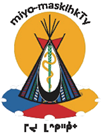
Artist Dale Cheechoo designed the above crest for the College of Medicine in 2003, in accordance with local Cree teachings.
The following are represented within the crest:
Medicine Wheel
4 Directions and their Teachings
Balanced Lifestyle
Teepee
Plains Cree
Women and Family
15 Teepee Teachings
The Teepee Lodge faces the South
Colors of the Teepee
Métis Sash Pattern and the Métis People
Eagle Feather
Strength
Sweet Grass
Medicine
Snake
Represents knowledge in Greek Mythology – adapted by Western Medicine
Snake and Sweet Grass
Partnership of Both Worlds, Western and Aboriginal
Represents the Concept of Self-Purification
One must purify oneself before entering the lodge.
One must heal oneself before becoming a healer.
Harvest Moon
Saskatchewan
Indigenous News
Loading...
Indigenous Programming and Initiatives
Indigenous Programming and Initiatives is responsible for the recruitment, retention, and support of Indigenous students into Medicine, providing guidance throughout their medical education into practice. The office manages and creates comprehensive programming and events such as:
- pre-admissions workshops
- welcome events
- Indigenous health booth at Indigenous celebration events
- Offers Cree language classes and Indigenous Health Electives for all medical students.
Meet the Team
Val Arnault-Pelletier - Senior Lead, Indigenous Initiatives and Programming
In her role as the Senior Lead Indigenous Programming and Initiatives, Val Arnault-Pelletier plays a central role in the continued and incremental success of the Indigenous Pathways Program within the College of Medicine’s Undergraduate Medical Education (UGME) program.
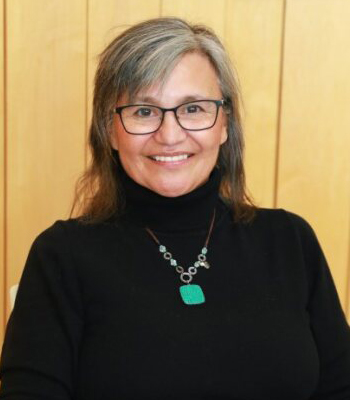
Val is a nehiyaw iskwew who situates herself from her mother’s community of Waterhen Lake Cree Nation, and her grandmother’s community of Beardy’s and Okemasis First Nation. She has worked at USask's College of Nursing and Medicine for 29+ years. Val has a passion for working with First Nations and Métis students, families and communities. She plays a strong role in advocacy, providing personal, social, and cultural supports for students in the college and beyond. She sits on several University of Saskatchewan committees including the Indigenous Advisory Circle, Indigenous Health Committee and the Health Sciences Indigenous Space and Visual Symbols Committee. She is also a strong proponent for First Nations and Métis cultural knowledge and inclusive of role models, Knowledge Keepers, and Cultural Advisors in her work. She is passionate about community issues and over the years has dedicated her time to the missing and murdered Indigenous women and girls, the Oskayak Daycare School Board, kidney transplant fundraising, and other community-based initiatives. She has a Métis husband, two adult children and a wee dog named Maggie.
Madison Marwood - Indigenous Elective Coordinator, UGME
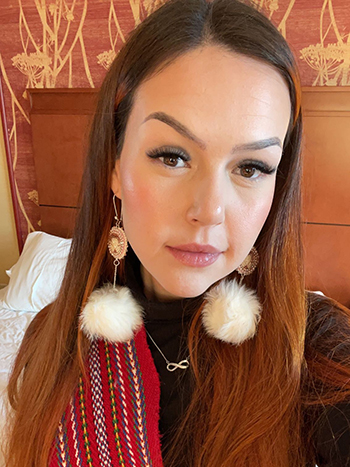
Madison is a Two-Spirit Métis professional and a proud citizen of the Métis Nation–Saskatchewan. Their maternal roots trace back to the Red River and the Métis settlement of Bresaylor near Maidstone, SK. Born in Calgary and having lived in many places growing up, Madison eventually returned to Saskatchewan to pursue post-secondary education—and has called the province home ever since.
Madison brings a strong commitment to Métis community, identity, and wellbeing to their work, with a particular focus on uplifting Indigenous voices and experiences within health and academic spaces. They are dedicated to fostering respectful relationships, advancing equity, and supporting culturally grounded approaches in all aspects of their role
Indigenous Admissions Pathway
Through the College of Medicine Indigenous Admissions Pathway, Métis, Inuit and First Nations people can apply for admission to the Medical Doctor (MD) program of study. This Pathway is designed to support growth in the number of Indigenous people becoming doctors in Saskatchewan. Up to Twenty seats in the MD degree program each year are specifically designated for Métis, Inuit and First Nations people.
Indigenous Community Council
The Indigenous Community Council meets quarterly and is comprised of members of the Indigenous community who advise the Office of Vice Dean Indigenous Health (OVDIH) in relation to the span of work of the OVDIH, The OVDIH’s enduring commitment to authentic community engagement and sensitive cultural matters impacting the College of Medicine.
Meet the Indigenous Community Council
Marie-anne Daywalker Pelletier
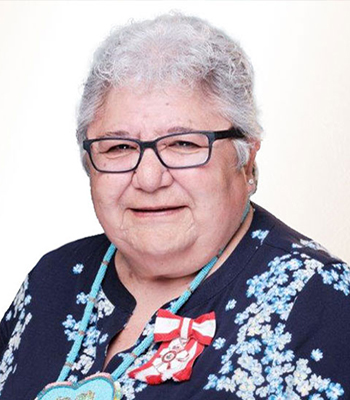
Marie-anne Daywalker Pelletier was born on April 15, 1954, in Regina Saskatchewan and is a member of Okanese First Nation. Marie-anne remains to this day, the longest-standing elected chief in Canadian history, serving from 1981 to 2020. It was Marie-anne’s dedication to community that gained her recognition as a leader, with her serving many times as a volunteer before taking on the role of ‘chief;’ a profession that was rarely represented by women at the time.
The importance of childcare and family have always been guiding pillars of Marie-anne’s work. Over the course of 39 years, Marie-anne was able to lay the groundwork for her community to achieve an unprecedented decrease in child apprehensions and the establishment of The Daywalker Home Fire Family Centre: A Centre dedicated to strengthening and reconnecting families.
In recent years, Marie-anne has received recognition for her years of service: becoming a member of the Order of Canada in 2018 and being honoured with the Saskatchewan Order of Merit in 2021. In 2020, her tenure as chief came to an end, allowing her more time to spend with family and to pursue passion projects. Today, you may catch her image on a Canada Post stamp that celebrates her as the trailblazing Indigenous leader she continues to be.
Robert Severight
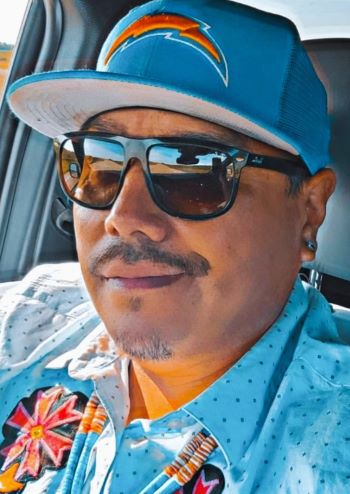
Robert Severight is a proud member of Cote First Nation. Born to an Anishinaabe mother and a Yokutz father, Robert also has roots to the Tule River Yokuts Reservation in California. Robert is a loving husband of 27 years to his wife Shelley, and father of four; two daughters and two sons who sing and drum with him. He enjoys travelling to powwows and dancing Men’s Traditional, as well as hunting and sharing with his community and Elders.
His childhood consisted of learning traditional teachings, solidifying a life grounded in culture and ceremony in which Robert passionately leads today. He especially takes great pride in sharing traditional teachings and knowledge with the youth. Presently, Robert works as a Indigenous Cultural Coach for the Good Spirit School Division in Yorkton; working with over 24 schools to educate on matters including Indigenous people’s protocols. A meaningful component of Robert’s work is ensuring that these discussions go beyond acknowledging the past and looking ahead to the future with great hope and optimism.
As a member of the Advisory Council, Robert remains optimistic about the potential and impact that the Department of Indigenous Health and Wellness will have. Robert’s lived experience and struggles with the healthcare system is what informs his willingness to continue to advocate. He remains committed and driven by the principle of “healing in a good way and continuing to move forward.”
Charlene Lavallee
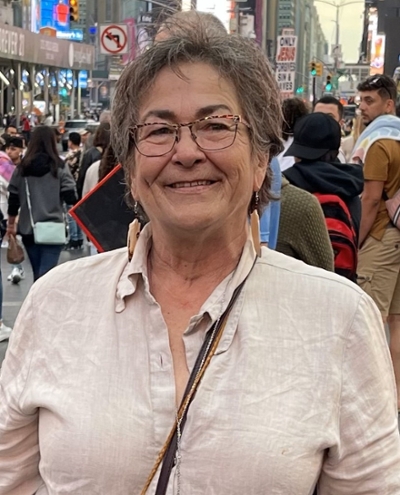
Charlene Lavallee is a vibrant, strong Métis woman who originates from Leoville, SK. Charlene is the mother of four, a stepmother to one, and a grandparent to five girls and three boys. Charlene is the oldest of four siblings. She is married to her husband Ken of many years, and they reside in Batoche.
Ms. Lavallee has extensive experience, knowledge, and training in many of the social sciences, primarily in justice, career and employment counselling, human resource development and partnership endeavors and health. Charlene has worked in the public sector, Métis communities and organizations and First Nation reserves.
Charlene is currently the president and CEO of the Association of Métis, Non and Status Indians of Saskatchewan. In this role she advocates for those non affiliated, off reserve and southern Inuit. AMNSIS represents Indigenous from every category the Indian and government legislation has separated, AMNSIS represents kinship.
Leroy Laliberte
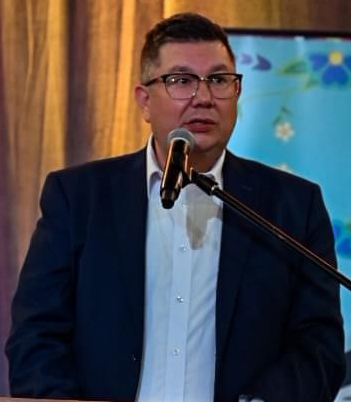
Leroy Laliberte is a Métis Michif originally from the Northern Village of Beauval and now resides in Meadow Lake, Saskatchewan with his wife Diana and their three beautiful daughters. Leroy is the Community Wellness Manager for Flying Dust First Nation. Leroy is also the Founder and Director of the Burn Youth Project/BURN Consulting. Leroy is the Vice President of the Northwest Friendship Centre’s Board. He is trained in Outreach, Crisis Management, MEMO Prevention, Project Management and is a Motivational Speaker.
He has helped develop and deliver powerful programming on challenging yet important topics such as suicide awareness and prevention, anger and emotions, positive youth development, healing, self-esteem, self-care, grief, and loss as well as motivational messaging for young people. Through the Burn Youth project, Leroy and his team of facilitators have hosted and led weekend retreats in First Nations and urban communities across Canada and into the United States.
One component that allows this all to happen is that Leroy walks in an understanding of life’s obstacles and chooses a clean life, though it was not always that way. His journey and teachings passed on by respected Elders enabled him to overcome great challenges brought on by substance abuse. He focuses on creating a healthy future for young people by modeling healthy behaviors while guiding them into positive behaviors and lifestyles.
Leroy is also a singer/songwriter and recording artist and has had the opportunity to share the stage with many award-winning aboriginal talents.
Grant Whitstone
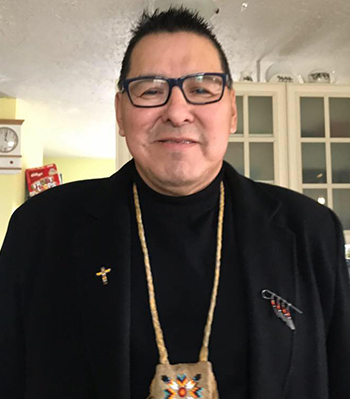
Grant Whitstone is a member of Onion Lake Cree Nation. Grant has spent his life in Onion Lake as an active member of the community, primarily dedicated to being an advocate in the areas of health and wellness, and child and family services. In Grant’s words, his focus rests “in the wellbeing of all human beings all over Turtle Island.”
Office of Vice Dean Indigenous Health (OVDIH)
The Office of Vice Dean Indigenous Health (OVDIH) is a unit within the Dean’s Office at the College of Medicine whose social justice mission is to humbly walk alongside all people of SK and the College of Medicine towards equitable health, well-being, and belonging; seeking truth and justice now and for the future generations. We build and challenge the capacity of the College of Medicine community to enhance the skills, attitudes, and education necessary to support the citizens of Saskatchewan so they can grow and thrive.
In October 2023, the Division of Social Accountability (DSA) transitioned under the OVDIH in support of a coordinated approach to community engagement for priority projects of the college and working collaboratively across the college and provincial health system to ensure the high-level aspirations of the college and departments related to Indigenous Health, Equity, Diversity and Inclusion and Social Accountability strategy are met.
The office works closely with the new Department of Indigenous Health and Wellness (DIHW) to help set up and grow the department in a way that ensures objectives related to Indigenous health are met and sustained. We also work in tandem with the DIHW, community partners and others internally to uplift Indigenous concepts, methodologies, and pedagogies.
Indigenous-led establishment of partnerships through respectful Indigenous community engagement protocols that reflect the diversity of the population, building access to networks of community partners, and determining respectful sustainable resource strategies, will be the distinctive work of the office and department.
Meet the OVDIH Team
Janet Tootoosis, BSc, MD, FCFP Vice Dean Indigenous Health
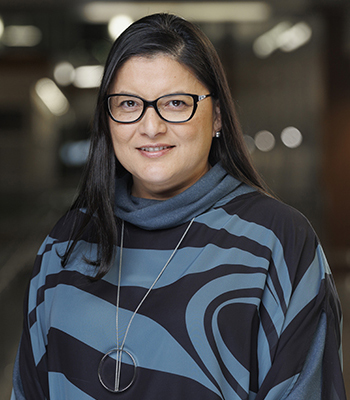
A Cree woman from Poundmaker Cree Nation and practicing family physician since 2001 in North Battleford, Saskatchewan. USask College of Medicine, Clinical Associate Professor since 2008, owner/operator of North Battleford Medical Clinic Inc. Possesses an extensive history of active participation in health care delivery and medical education initiatives in the region and province. Experience as an instructor and site director for the University of Saskatchewan College of Medicine’s North Battleford Family Medicine Residency Training Program. Served as the Director for Postgraduate Rural Education for the Department of Academic Family Medicine, USask (2019-2022). Formal governance training and experience, Saskatchewan Medical Association (SMA) Board member (2014-2017) and the inaugural Saskatchewan Health Authority (SHA) Board member (2017 – 2021). Most recently appointed as Vice Dean Indigenous Health, College of Medicine, University of Saskatchewan in October 2023, serving as Interim Vice Dean since June 2022.
Bill Ng, Finance and Administration Manager - On Leave
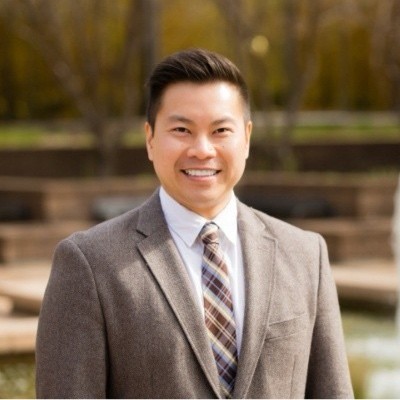
Bill Ng was born and raised in Saskatchewan. He is a University of Saskatchewan alumni, having completed his degree in accounting. He obtained his Chartered Professional Accountant designation in 2009 and has been working in the area of finance/accounting since 2006. Bill has previously served as a board member with the Physiotherapy Education Accreditation of Canada from 2012-2024 as the Director of Finance. He brings strong leadership skills, a great deal of experience with financial reporting, budgeting, forecasting, and project management, with effective analytical and critical thinking skills. Bill has also previously held a financial officer position within the College of Medicine in the Dean’s office at the University of Saskatchewan.
Natalya Mason - Equity, Diversity and Inclusion Specialist
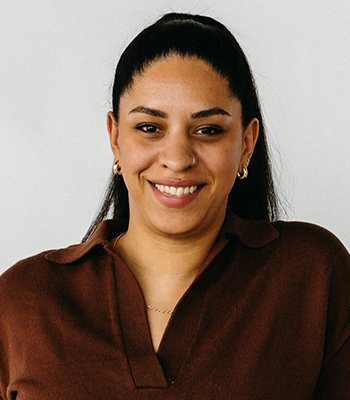
Natalya Mason is the EDI Specialist. She is a registered social worker who was born and raised in Saskatoon, SK. Natalya is a Black first-generation Canadian, and a settler on Treaty Six Territory. She has a background in psychology and social work, and holds an M.A. in Women’s, Gender, and Sexualities Studies. Natalya is dedicated to social justice, anti-oppressive education, and reproductive rights. She is a queer feminist living in contradiction, committed to continuous learning and unlearning.
Joelle Schaefer - Community Engagement Specialist
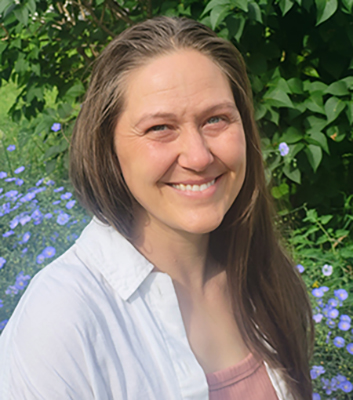
Joelle Schaefer is the Community Engagement Specialist. Living on Treaty 6 Territory and Homeland of the Métis, Joelle has called Saskatoon home for 20 years. She has experience in community-based programming and population health research. Joelle holds a BSc. in Kinesiology and a Ph.D. in Community and Population Health Sciences. She is passionate about health equity and addressing needs through community-driven initiatives. Joelle is committed to lifelong learning and unlearning in her daily life to support this work. As a parent, Joelle strives to teach her children kindness and compassion every day.
Erica Wilchuck - Executive Assistant - Starting March 2
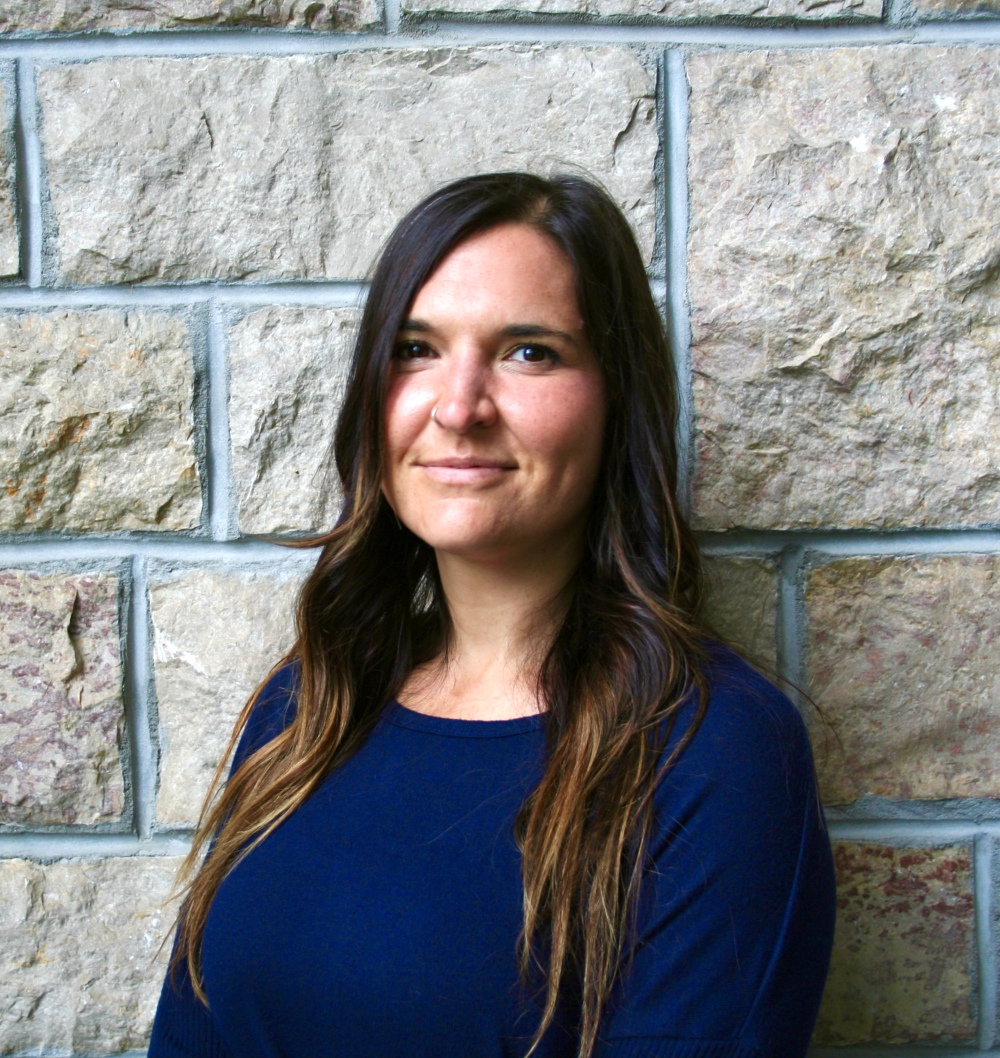
Erica Wilchuck is a proud Métis Nation citizen born and raised in Saskatoon on Treaty 6 Territory and has been with the University of Saskatchewan since 2017. Her years at USask, along with time spent living internationally, have enriched her worldview, strengthened her cultural awareness, and deepened her commitment to relationship centered work. She is also a mother of two, and her experiences as a parent continue to inspire her values, her resilience, and her dedication to creating supportive and meaningful spaces for others.
Robert (Bob) Merasty - Indigenous Protocol and Relation Specialist
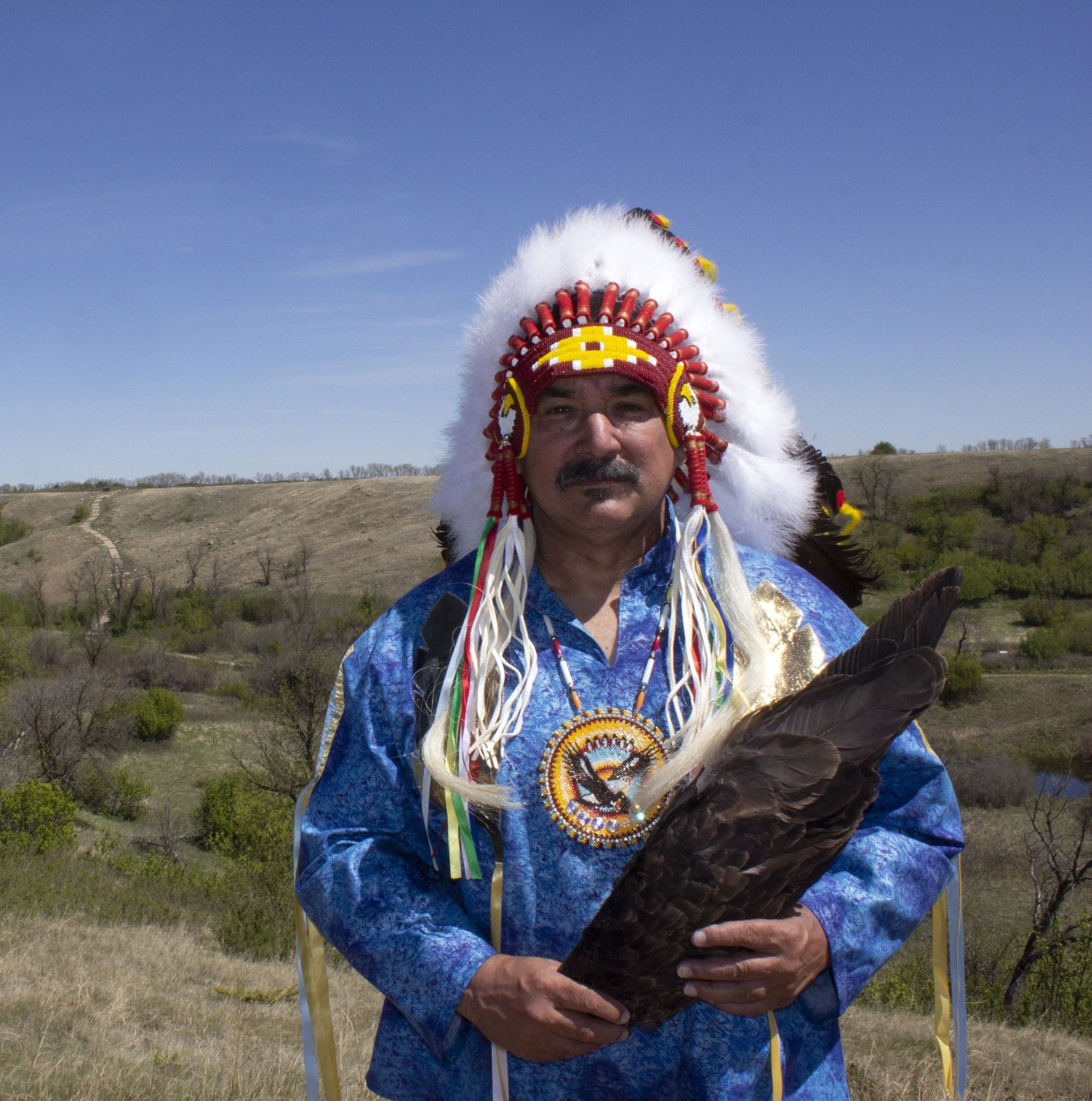
Robert (Bob) Merasty is a respected community leader and traditional knowledge teacher with deep roots in Cree language revitalization and cultural teaching. With decades of experience, Bob has dedicated himself to supporting Indigenous communities by connecting a strong cultural understanding and empowering voices. His fluency in both English and Cree allows him to bridge the gap between modern community initiatives and traditional Cree teachings.
Bob is renowned for his ability to build strong partnerships and cultivate inclusive community spaces where traditional knowledge is celebrated and passed on to younger generations. His collaborative approach has been central to his work with organizations such as the chair of the Miyo Pimatisiwin Society and his leadership in community-based initiatives that honour the heritage of the Cree people.
Formerly, as Chief of Flying Dust First Nation, Bob led efforts to strengthen community ties and support cultural continuity through innovative programs that integrated traditional values with contemporary community development. His roles as Executive Director of the Indigenous Resource Network and Second Vice-Chief of the Federation of Sovereign Indigenous Nations further highlight his commitment to community empowerment and Cree teachings
Bob Merasty’s passion for the Cree language and his dedication to teaching traditional knowledge continue to inspire and uplift Indigenous communities, ensuring that Cree culture and heritage remain vibrant for generations to come.
Kristen Crockett - Clerical Assistant, Division of Social Accountability
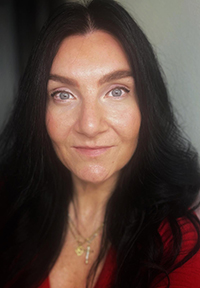
Kristen Crockett was born and raised in Saskatchewan with a heart for big city life and travel. She brings over 25 years of experience in medical/legal/general administrative support, with 15 of those years being in emergency services. Kristen is passionate about volunteering and leading community initiatives to bring aid to those in need. Empathy and kindness are traits she encourages in her children and those around her.
Division of Social Accountability
The Division of Social Accountability (DSA) resides within the OVDIH. For a complete staff list, please visit Our People.
